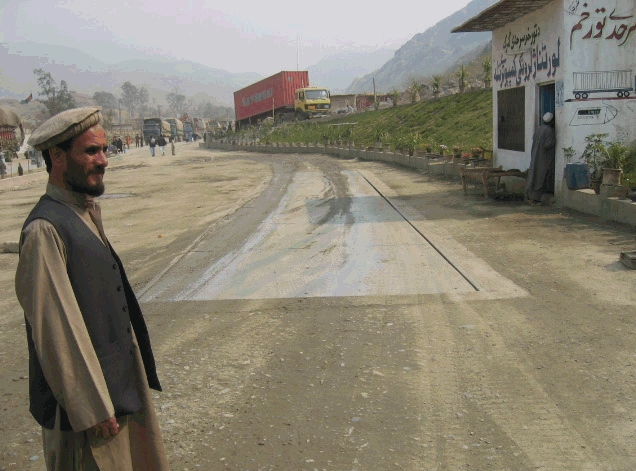( RFE/ RL ) – A full-blown conflict between Afghanistan’s Taliban and neighboring Pakistan seemed unthinkable when the hard-line Islamist group, a longtime ally of Islamabad, seized power in 2021 as international troops withdrew and the government they supported collapsed.
But fears have heightened of an all-out war after the deadliest-ever clashes involving Taliban fighters and Pakistani troops over the weekend.
“This confrontation is hugely significant and could have long-term consequences for the countries,” said Sami Yousafzai, an Afghan political commentator.
Fierce fighting erupted between Taliban fighters and Pakistani security forces on October 11-12, leaving dozens dead and key border crossings closed.
The border clashes occurred just days after Pakistan carried out unprecedented drone strikes in the center of Kabul as well as air strikes in the country’s east.
Pakistan’s strikes followed a string of deadly attacks by the Tehrik-e-Taliban Pakistan (TTP) extremist group. Islamabad accuses the Afghan Taliban of sheltering the TTP, an allegation it denies.
Taliban fighters and Pakistani soldiers have sporadically clashed along the countries’ 2,600-kilometer border since 2021. But the ferocity of the violence and the explosive rhetoric marked a shift, experts say.
“The Taliban’s silent tolerance of the TTP and its growing nationalist tone have shattered Islamabad’s long-held expectations of a friendly government in Kabul,” said Khalid Sultan, an Islamabad-based commentator.
Islamabad had supported the Taliban since the group first emerged in the 1990s, including allegedly during the group’s 20-year insurgency against the US-backed Afghan government.
The strategy, experts say, was to install a pliant government in Kabul that would secure Pakistani interests. But that strategy appears to have backfired.
In the event of a broader war, Pakistan holds the military and technological advantage, experts say, but the Taliban also has the capability to counter punch.
“Taliban fighters are seasoned insurgents and will likely find a new cause for jihad (holy war) that will sustain their momentum to fight for a longer period,” said Hameed Hakimi, an associate fellow at London’s Chatham House think tank.
“Additionally, a protracted war with Pakistan could also offer Taliban leaders an avenue to garner domestic support due to an inherent resentment against the Pakistani security establishment in Afghanistan,” he added.
Reducing Tensions
Despite the growing tensions, fueled in part by a massive initiative in Islamabad to repatriate some 4 million Afghans back home, Pakistan and the Afghan Taliban are unlikely to go to war, experts say.

File Photo. “Afghan Customs weigh-scale at the Torkham border crossing between Afghanistan and Pakistan.” USAID. Public Domain. Via Picryl. .
The cash-strapped Taliban government in Kabul is internationally isolated. Only Russia has recognized it. The Islamist group has also been unable to address the economic and humanitarian crises gripping the impoverished country.
Pakistan, meanwhile, is also grappling with economic strain and political instability. It also waged a brief war with archrival India in May.
“Both sides have an interest in reducing tensions from this point onwards,” said Arifa Noor, a Pakistani commentator and journalist.
“For the government in Kabul, it makes no sense to add to its challenges by getting involved in friction and conflict on its border,” she added. “The same stands true for Islamabad.”
Thaw With India
Growing tensions between Pakistan and the Afghan Taliban could push Kabul closer to India, experts say.
In a move that has angered Pakistan, the Taliban’s Foreign Minister Amir Khan Muttaqi arrived in New Delhi on October 10 for a week of talks. It is the Taliban’s highest-level visit to the country since the group took power.
During the first day of talks, New Delhi announced it was upgrading its mission in Kabul to a full embassy. The sides were also expected to discuss trade and economic ties.
India was a close ally of the former Western-backed Afghan government and invested heavily in the country.
“Increasing hostilities with Kabul could simply push the regime there closer to New Delhi,” said Noor.
“This is hardly a situation that suits Pakistan. In fact, Islamabad’s main contention during the past was that the close relations between Kabul and New Delhi worked against Pakistan’s interests.”


 © 2026 All Rights Reserved
© 2026 All Rights Reserved